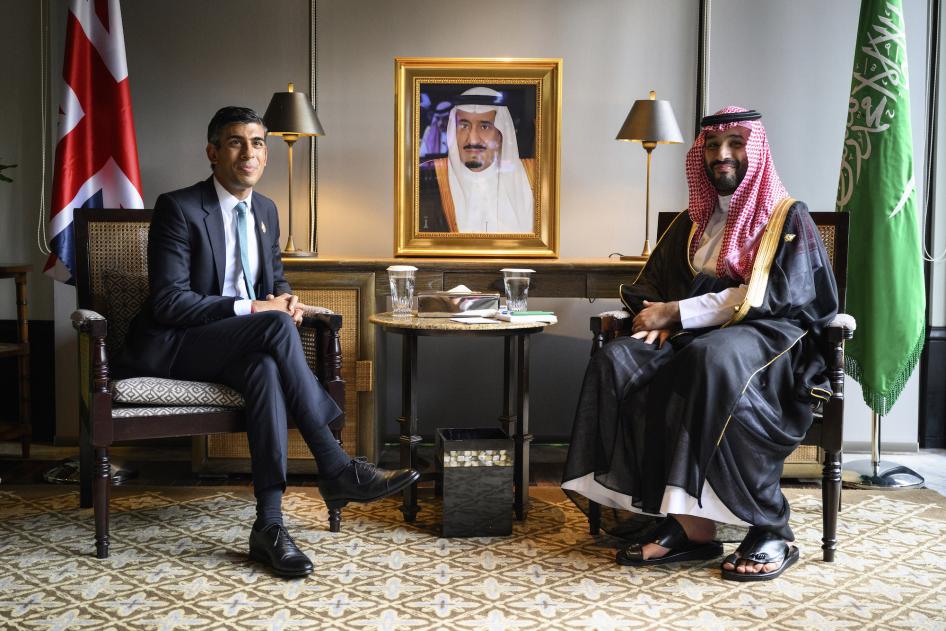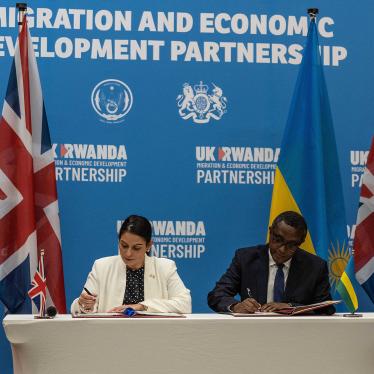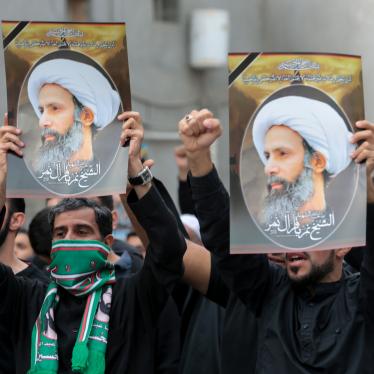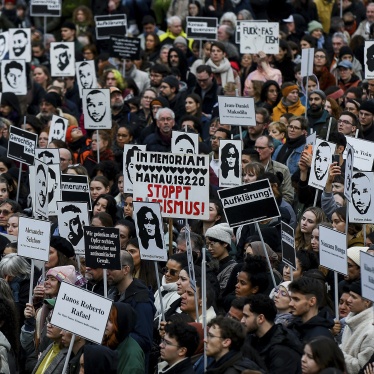The UK Government will soon roll out the red carpet to host Mohammed Bin Salman, the Crown Prince of Saudi Arabia, despite the country’s grave human rights abuses both at home and abroad.
Chief among the subjects expected to be discussed is the UK’s pursuit of a Free Trade Agreement with the Gulf Cooperation Council, where Saudi Arabia is a prominent member. Details of the ongoing negotiations have been shrouded in secrecy and the UK has failed to publicly pledge to include detailed rights protections, particularly in regard to migrant workers. This is despite the government’s own assurances that “more trade will not come at the expense of human rights.”
The UK mustn’t choose economic expedience or validate the Saudi government’s public relations on rights in pursuit of a trade deal. No visit or trade deal should take place without the necessary human rights improvements, particularly labor rights, to ensure that trade with the UK is not tainted by the Saudi government’s abuses.
Since the brutal murder of the journalist Jamal Khashoggi in 2018, Saudi Arabia has embarked on an aggressive campaign of sportswashing. In the UK, its role in the purchase of Newcastle United continues to stoke controversy, while the recent proposed agreement between Saudi Arabia’s sovereign wealth fund, the Public Investment Fund, and the PGA Tour to merge with LIV Golf is a glaring example of sportswashing and has been described by American lawmakers as an example of how a “brutal, repressive regime can buy influence.”
Peer behind the curtain of these big money purchases and you will see a country that remains brutally repressive. Last year, Saudi Arabia executed 196 people. On a single day in March, it executed 81, the largest mass execution to ever take place in the Kingdom.
It is also a country that doesn’t tolerate any form of dissent. In August last year, a Saudi appeals court dramatically extended the sentence of Salma al-Shehab, a doctoral student who had been studying in the UK, from 6 years to 34 years. Her crime? Sharing opinions on Twitter that the state did not agree with. Sadly, her case is not an isolated incident. Human Rights Watch has documented extensively how the Saudi government flagrantly abuses the vague provisions in its counterterrorism law and anti-cybercrime law to silence dissent.
If the visit goes ahead, it risks entrenching the regime’s perceived impunity for the murder of Jamal Khashoggi and its ongoing crimes in Yemen, as well as green-lighting further repression at home.









